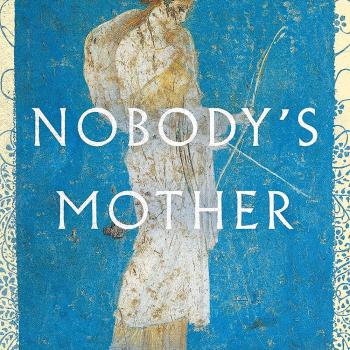Over at Reformed Margins, Andrew Ong has posted a generous and constructive review of my book One Gospel for All Nations.
 Reading reviews of your own book always leads to mixed feelings. People sometimes misrepresent your thoughts or nitpick small details. However, I truly appreciate Andrew’s thoughtful comments. His balance and breadth of understanding of the related issues demonstrates why he is PhD student in World Christianity under Andrew Chow at the University of Edinburgh.
Reading reviews of your own book always leads to mixed feelings. People sometimes misrepresent your thoughts or nitpick small details. However, I truly appreciate Andrew’s thoughtful comments. His balance and breadth of understanding of the related issues demonstrates why he is PhD student in World Christianity under Andrew Chow at the University of Edinburgh.
Although he gives a kind endorsement of the book, he does give some push back. In particular, he says, “Wu does not lead us out of the hermeneutical spiral.”
By this, he means that One Gospel for All Nations is bound by the same sort of limitations for which I critique other theological views. That is, I stress the fact that our interpretations of Scripture are often constricted by our systematic theology, which tends to reflect our (sub)cultural context. As a result, I urge people to prioritize biblical theology (not systematic theology) when doing contextualization.
if there is no acultural theology, can there still be an acultural biblical theology? Though few biblical scholars might disagree with Wu’s admittedly broad threefold framework of creation, covenant, and kingdom, if his biblical theology is inevitably influenced by his local culture, why should readers accept his gospel framework as “firm” for them, and not just for him? Is his perspective not merely one perspective on biblical theology that has been shaped by his own unique cultural perspective? Is Wu’s advancement of this “firm” gospel frame just another attempt to extract an “acultural gospel” from Scripture?
He then adds,
one wonders whether his insistence upon a firm gospel framework is either another attempt to identify an acultural gospel, or a less than firm framework that was influenced by Wu’s own specific cultural context.
In reply, I can simply say one this: I agree.
There is no “acultural” perspective
In fact, he highlights exactly the phenomenon that I think we must acknowledge if we are to do contextualization well. We all come to the Bible with a cultural lens, which limits our ability to interpret Scripture in an entirely balanced way. Our backgrounds will inevitably influence whether we notice certain things and overlook other parts of the text.
As I explain in the book, this does not mean that theology must devolve into utter relativism.
Without a doubt, the biblical narrative has a number of fixed points that provide a framework for interpreting the whole. Of course, these broad items require explanation if we are to grasp their fuller significance. Yet, they exist nonetheless.
(By analogy, we can speak about the existence of genders, human language, and rulers that control entire groups of people. These are consistent aspects of the human experience. Pointing this out, however, does not make “gender” and “language” acultural concepts.)
When I suggest that creation, covenant, and kingdom are the three “framework themes” used by the biblical writers to explain the gospel, I certainly don’t imply that these these form an “acultural” gospel. In fact, these motifs belong to a historical narrative spanning many centuries and cultures.
The gospel is necessarily cultural; otherwise, it is an abstraction.
This is why I also emphasize the importance of “explanation themes,” which clarify the significance of the framework themes (creation, covenant, and kingdom) as used in the Bible. They are the “flesh” that gives life to the “bones” of the Bible’s narrative framework.
I’m thankful for Andrew’s careful review. He rightly identifies some of the most pressing issues related to contextualization.
Let me know what you think? Can we actually escape the hermeneutical spiral when doing contextualization? Why or why not?
Photo Credit:
Book Review (ReformedMargins.com)
Spiral (Pixabay, Public Domain)














